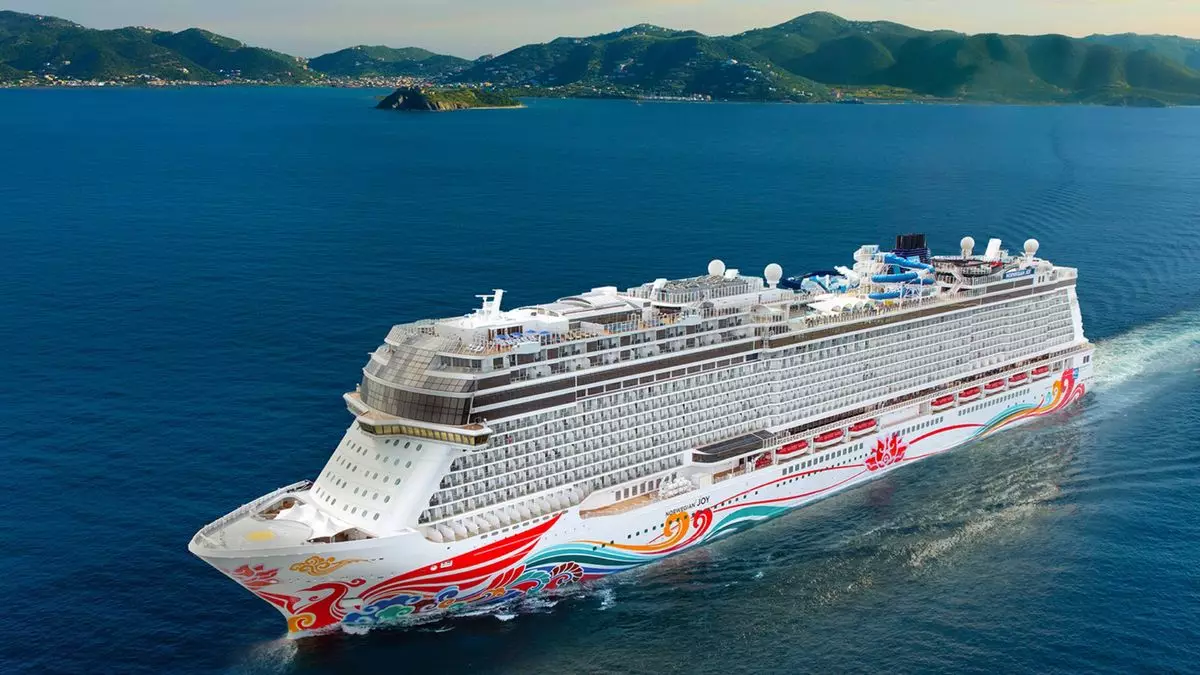The implications of the Trump administration’s recent threats to impose taxes on cruise lines remain nebulous for industry players like Norwegian Cruise Line Holdings (NCLH). CEO Harry Sommer’s insights point to the notion that these potential tax changes may not exert immediate influence but could have longer-term ramifications, especially as the administration seeks to navigate complex geopolitical landscapes involving Israel and Ukraine. Sommer emphasized that discussing potential outcomes at this juncture might be premature, particularly given the uncertainty surrounding specific policy proposals.
Sommer’s commendable recognition of the administration’s attempts to mediate escalating tensions, particularly the conflicts involving Israel-Hamas and Russia-Ukraine, resonates strongly within the cruise industry. The resolution of such conflicts could unfurl significant opportunities for NCLH, reshaping its cruise offerings and destinations. If peace were achieved, it might lead to an influx of travelers seeking unique experiences in regions long marred by instability. In the realm of maritime tourism, geopolitical stability is crucial, and NCLH could be strategically positioned to capitalize on any resulting peace dividends.
Looking ahead to the summer of 2026, NCLH’s strategic decision to base a third of its fleet—comprising 11 ships—in Northern Europe is noteworthy. This bold move is particularly poignant when considering that St. Petersburg, a once-popular destination, is currently off the itinerary due to ongoing geopolitical strife. Sommer suggested that should St. Petersburg reopen to cruises, NCLH could potentially realize disproportionate benefits from its regional positioning.
This forward-thinking deployment strategy demonstrates NCLH’s commitment to optimizing its fleet for future demands. By anchoring its vessels in Northern Europe, the company may not only tap into existing markets but also attract new clientele eager to explore the cultural richness of the region. The anticipation surrounding the reopening of St. Petersburg encapsulates the broader industry hope that peace and stability will return to Europe, thereby invigorating tourism.
During NCLH’s recent Q4 earnings call, Sommer expressed a “reasonably happy” outlook regarding the company’s booking pace, with summer routes in Europe and Alaska performing particularly well. This optimistic picture stands in contrast to ongoing struggles with luxury brand bookings for Oceania and Regent, which Sommer noted were lagging behind expectations. However, he also highlighted that the Norwegian Cruise Line brand itself is holding its ground, indicating a balanced demand across the company’s offerings.
Achieving an “optimal booked position” for the next twelve months, NCLH has reported record-breaking numbers in key performance metrics for the fiscal year. The figures are hard to ignore: total revenue soared to $9.5 billion, an 11% increase year-on-year, while net yield growth saw a commendable rise of nearly 10%. Beyond revenue, the company has enhanced its financial health, evident in the 32% increase in adjusted earnings before interest, taxes, depreciation, and amortization (EBITDA), reaching a historic $2.45 billion.
A critical aspect of NCLH’s recent performance narrative involves effective debt management, as evidenced by the refinancing of $1.8 billion in debt. This strategic financial maneuver not only alleviates immediate financial pressures but also positions the company favorably in a competitive market. By solidifying its financial foundation, NCLH enhances its ability to invest in fleet expansion and innovation, crucial for remaining competitive in a rapidly evolving travel landscape.
While the immediate effects of government policy changes remain uncertain, Norwegians Cruise Line Holdings’ strategic positioning and resilient financial performance suggest promising prospects for the future. As the geopolitical landscape evolves, so will the opportunities for growth and expansion for NCLH, particularly if peace negotiations yield favorable outcomes. The combination of informed financial management, strategic operational decisions, and a responsive approach to market dynamics could very well set NCLH on a trajectory for sustained success in the years to come.

